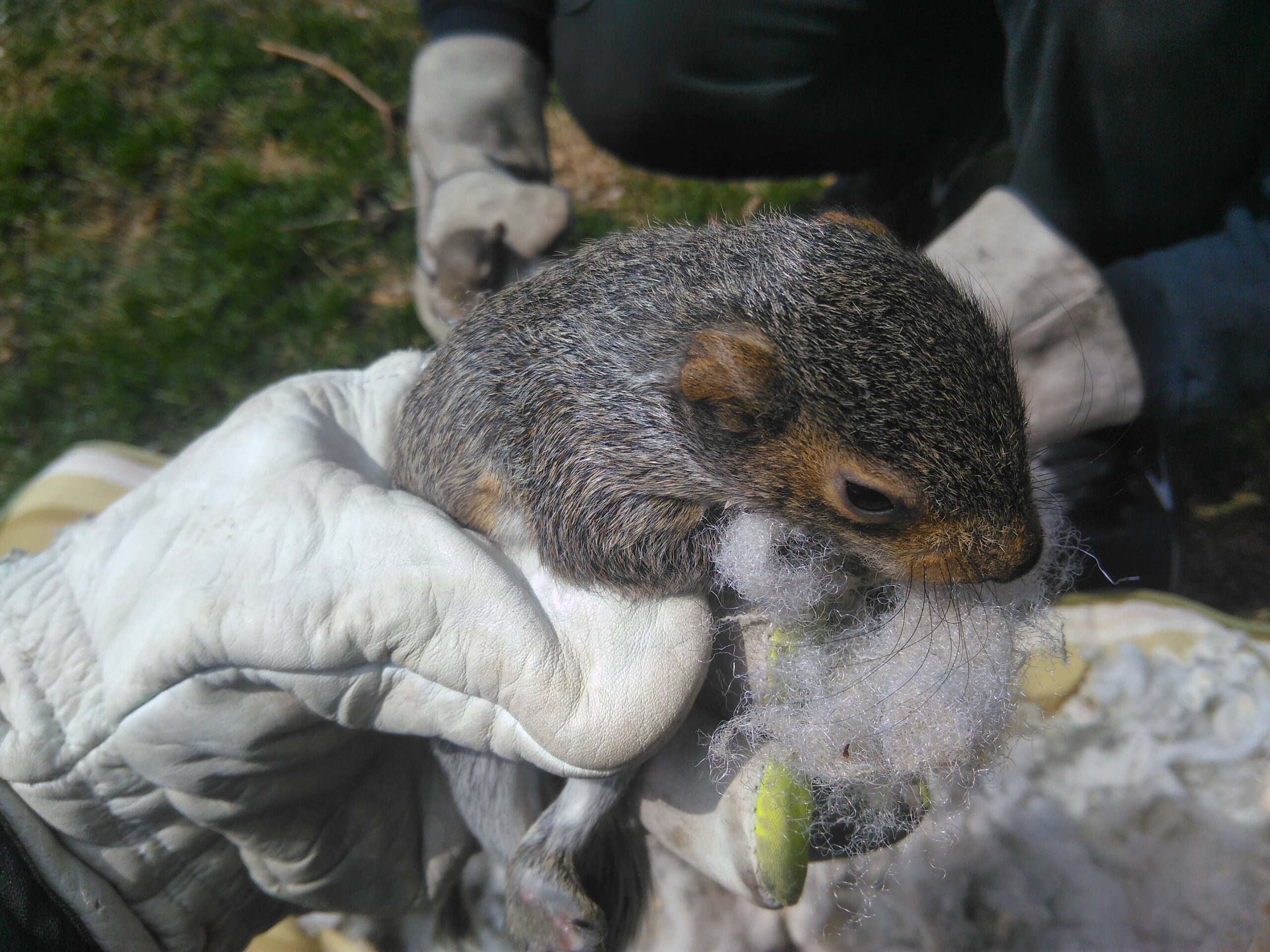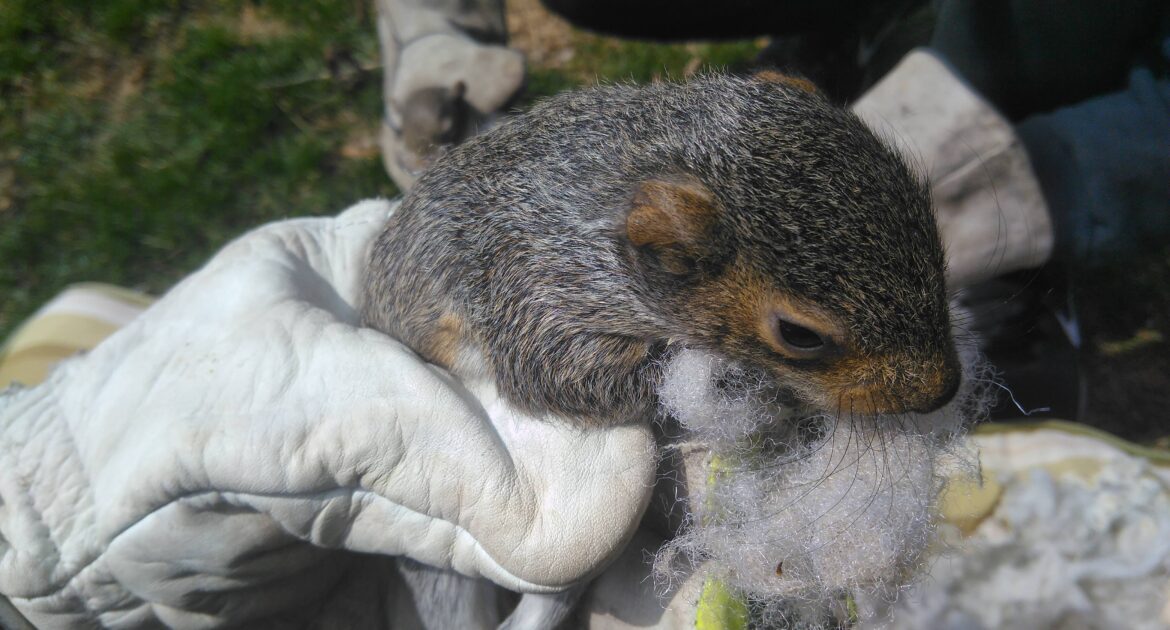Think back to any bonfires you’ve attended or late nights coming home from an event. Do you recall any squirrels scurrying around as you sat by the fire? Any memory of squirrels chattering by the birdfeeder as you returned home from that late-night event? The answer is likely, no. Most squirrels are not typically nocturnal animals, meaning that they usually operate during the day and sleep at night. Find out more about what squirrels do during the day, how they spend their nights, and who to call for Okanagan wildlife control.
Diurnal vs. Nocturnal Squirrels
Think about it, are squirrels nocturnal? For the most part, squirrels eat, mate, and forage during the day. They do their maniacal running back and forth across roads, and they bury their winter bounty in too many spots to count in the daylight hours. During the evening and throughout the night, squirrels stand posted in their nests for a little while and then head to bed by themselves or with a few other squirrels for safety and warmth. They are, by and large, not nocturnal.
Urban squirrels that most people are familiar with are diurnal, meaning they stay awake during the day and sleep during the night. However, some flying squirrels are nocturnal, meaning they head out of the nest during the nighttime hours and sleep the day away when it’s light out. Nocturnal squirrels include the Japanese flying squirrel and the Northern flying squirrel.
Why Are Most Squirrels Diurnal?
To answer this question, you must first consider, do squirrels hibernate? Many squirrels are diurnal because they do not fully hibernate or go into a deep torpor. Instead, many urban squirrels experience daily torpor and some extended torpor. The brown bear is an example of an animal that hibernates in deep torpor. The brown bear is no longer regulated by the circadian rhythm of its body in deep hibernation. During this state, its temperature drops, and all body functions slow.
The squirrel, however, is still regulated by circadian functions. This means that the squirrel is programmed to wake and eat at certain times; most activity happens during the light, and sleeping happens during the cover of night.
How Do Squirrels Avoid Predators?
Squirrels have excellent daytime vision but do not possess any nighttime vision benefits as some other animals do. While squirrels are foraging during the day or looking for mates, they can rely on their vision to keep them safe. They can see predators with their honed peripheral vision as they complete other tasks. These skills would be rendered useless during the night, and the squirrel helpless to nocturnal predators that have night vision. The predators that squirrels have to watch out for in the darkness include:
- Owls
- Badgers
- Cats
- Foxes
- Birds
- Coyotes
- Weasels
- Snakes
Where Do Squirrels Go at Night?
Squirrels head to their nests for safety during the night. Since predators are varied, squirrels have to make their homes in different places to ensure that they are safe from all kinds of threats. For the most part, squirrels will make their nests in trees, but not always.
Leaf Nests
Squirrels create leaf nests up to 20 feet in the air, lodged in the crux of branches. Leaf nests can be several feet wide and so dense-packed that predators cannot find the squirrel inside. Leaf nests are referred to as dreys.
Tree Dens
Squirrels will also take cover in tree dens. Tree dens are areas of hollowed-out trees usually left by a bird, like a woodpecker. Dens are ideal nesting spots for winter, as they provide ample cover from predators and weather.
Your House
Unfortunately, your house is also among the top selections for squirrel nighttime nesting spots. Squirrels may find a way in through loose roofing and nest in your attic, seeking warm shelter.
If you suspect you have a squirrel living in your attic, contact Skedaddle Humane Wildlife Control for safe and professional removal.





